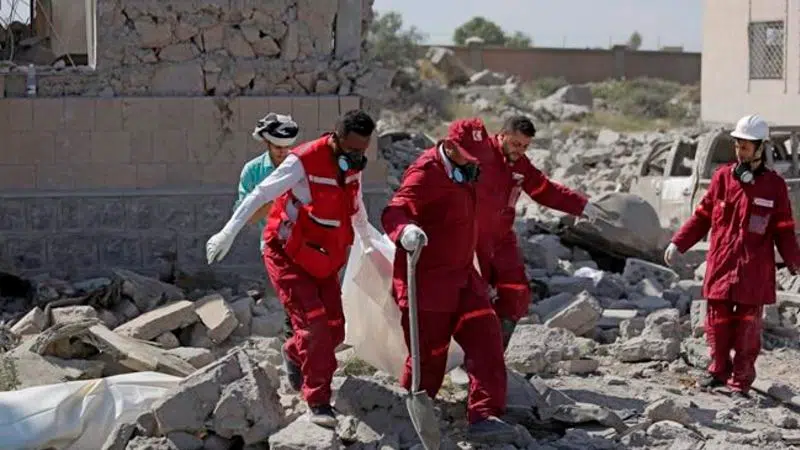
Saudi-led airstrikes kill at least 60 at rebel-run prison
SANAA, Yemen — The Saudi-led coalition fighting Yemen’s rebels attacked a detention centre in the southwestern province of Dhamar with several airstrikes Sunday, killing at least 60 people and wounding several dozen, officials and the rebels’ health ministry said.
The attack was the deadliest so far this year by the coalition, which has faced international criticism for airstrikes that have killed civilians and hit non-military targets.
Yemeni officials said Sunday’s strikes targeted a college in the city of Dhamar, which the rebels, known as Houthis, were using as a detention centre. The coalition denied it had struck a lockup, saying it had targeted a military site.
“We were sleeping and around midnight, there were maybe three, or four, or six strikes. They were targeting the jail, I really don’t know the strike numbers,” wounded detainee Nazem Saleh said while on a stretcher in a local hospital. He said the International Committee of the Red Cross had visited the centre two times before the airstrike.
